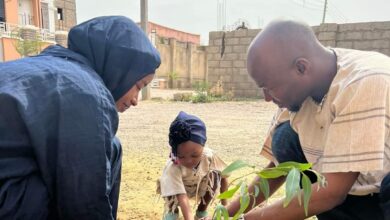Viewing Centres Or Islamic Schools: Mixed Reactions Trail Katsina Lawmakers’ Move
One of the reasons given by lawmakers for the move to convert the television viewing centres to Islamic schools is to curb the high rate of insecurity experienced in the state and also provide employment for teachers.
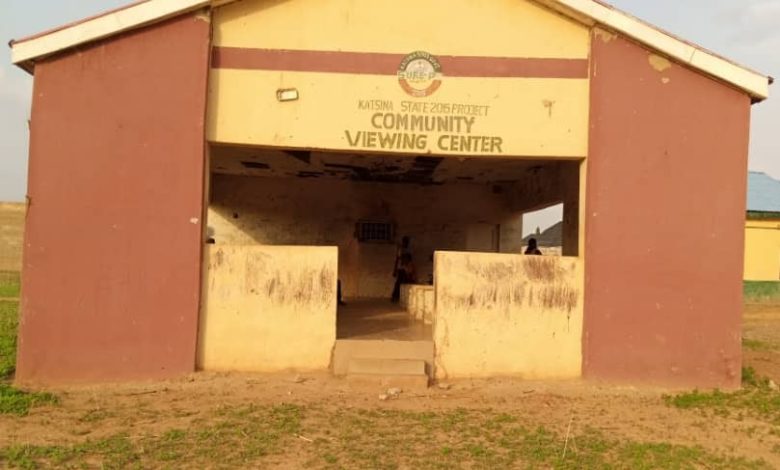
Earlier in July 2021, the Katsina State House of Assembly began the process of abolishing television viewing centres across the state’s 34 Local Government Areas (LGA).
The motion to ban viewing centres across the Northwest Nigeria state was moved by a legislator, Hon. Mustapha Yusuf Jibia, who is representing Jibia constituency. It has since raised dust among media outlets and Katsina residents.
The move is targeted at the replacement of the viewing centres with Islamic schools, and it received a nod from majority members of the assembly.
This is pending the report of the committee’s assessment of the number of those centres and also the non-functional Islamic schools across the state.
Why they were established
The television viewing centres were first established in each of the 34 LGAs by the former Katsina State governors, late Umar Musa Yar’adua (1999 – 2007) and Barr. Ibrahim Shehu Shema (2007 – 2011) respectively.
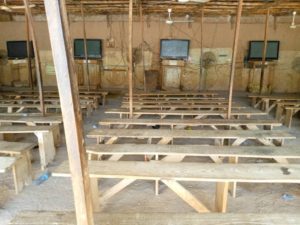
The objective was to bring rural and city dwellers closer to the government through awareness campaigns on the government policies, programmes, and activities in the state.
However, the latest development, according to Mustapha Jibia, will appropriately respond to the plea made by bandits who at some point during peace negotiation, complained of the lack of Islamic schools to enrol their children.
Jibia further said that the proposed conversion will equally address the problem of almajiri children roaming the streets. That abolishing the already abandoned centres can further dislodge all forms of social vices perpetrated by criminals, redundant youths, and armed bandits hiding at the various centres.
Some agree, some disagree
Contrary to the aforementioned claims, some users of the facilities expressed their worries and concerns over the ongoing move to shut down “the only public places they have their hay day.”
But Yusuf Lawal Master, a Katsina resident who supports the abolition, told HumAngle: “These centres were surreptitiously established just to stop the rural youths’ migration into the city areas. This is why Indian and Hausa films and other government programmes are shown for the rural people to watch.”
Master explained that “now the places are no longer in use. Thieves, bandits, and drunks have occupied them,” adding that those taking care of the facilities include ward councilors and district heads of the respective areas.
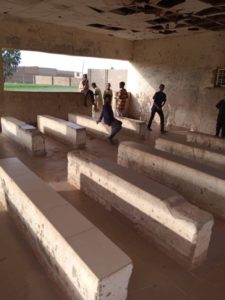
Abdullahi Isah also pointed out that the centres “destroy good character” and recalled when a football fan was killed in the course of a heated debate about clubs.
Chief Imam of the Jumu’at mosque located at Low Cost, Daura, Malam Musa Mansur, said “I think this move by the Katsina Assembly is a good step to address social vices ranging from homosexuality, adultery, fornication, drug abuse and the spread of insecurity in the areas in question. We all know these are happening at those viewing centres.”
Also, Malam Shuaibu, a resident of Batagarawa and Imam of the Kalgo Gari Juma’at Mosque, added that “this is a good development because it’s an avenue to correct the situation. We are aware that these social facilities are vandalized: the roofs, doors and windows were removed and boggled by thieves and sold away for no reason by poverty-stricken and redundant youths.”
Abdulmalik Nuhu Makeri, 32, from Zango LGA pointed out that, “this move I think is really good because these places are turned into a place for football games for children and minors. I am sure that their conversion would not affect the youths, because currently, GSM and android phones are available for watching films.
“Now is different from the years of 1999 to 2011 when Katsina State governments of the late Umar Musa Yar’adua and Barr. Ibrahim Shema established the centres.”
Makeri advised that the government provide those who took care of the viewing centres gainful employment after the conversion.
Ibrahim Bello Kuraye, who owned television sets in one of the centres argued that “the State Assembly Member from Jibia constituency who moved the motion for the conversion of the centres should have been asked by the House to first of all tell members the centres that are abandoned and non-functional.”
“The government should come up with avenues to cater for our needs as the gatekeepers of the centres.”
A sociologist’s perspective
Malam Nasiru Bello Alkali, a sociologist and lecturer at Abdu Gusau Polytechnic from the Department of Liberal Studies, pointed out some grey areas in the Assembly’s move.
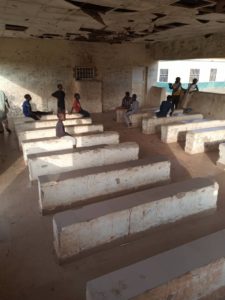
“One of the greatest mistakes the Government makes is usually it’s inability or levity to provide appropriate alternatives to new decisions of this magnitude.”
Alkali gave an instance: “Those youths who built acquaintances and established friendship with the good, the bad and ugly types of friends at those centres for such long years would find it difficult, if not impossible to get subsumed by this decision.
“These categories of people will regroup and develop strategies for the alleged crime people are mentioning.”
Alkali advised that the government should tactically and properly identify the centres’ users for proper redress.
Support Our Journalism
There are millions of ordinary people affected by conflict in Africa whose stories are missing in the mainstream media. HumAngle is determined to tell those challenging and under-reported stories, hoping that the people impacted by these conflicts will find the safety and security they deserve.
To ensure that we continue to provide public service coverage, we have a small favour to ask you. We want you to be part of our journalistic endeavour by contributing a token to us.
Your donation will further promote a robust, free, and independent media.
Donate Here

